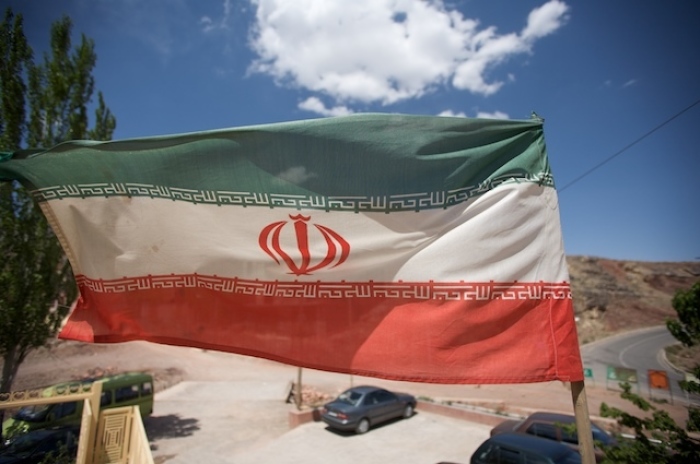Mass arrest of Iranian Christians, broader crackdown demands international attention

At the end of June, the Islamic Revolutionary Guard Corps (IRGC) conducted a coordinated operation in Tehran and two other Iranian cities, aimed at disrupting the country’s “house church” movement and sweeping up members of the Iranian Christian community. Intelligence agents raided the home of one recent convert and arrested several of the other Christians who had gathered there. The rest were ordered to forfeit their mobile phones and leave identifying information with the agents, meaning that the threat of arbitrary arrest will likely haunt them for the foreseeable future.
That threat was underscored by the fact that persons not present at the gathering were issued summons and arrested at their homes in another leg of the operation, bringing the total number of arrests up to 12. This crackdown was by no means unique in the recent history of the Iranian regime’s treatment of religious minorities. It was, however, the largest mass arrest of Christians to be publicly reported in recent months. And it may be a warning sign of things to come.
It may not be possible to say with certainty until the charges against the arrestees have been revealed, but the June 30 arrests may prove to be an early example of Tehran’s implementation of new laws that have been highlighted by advocates for Iranian Christians and other persecuted religious groups. Passed in mid-May, amendments to Articles 449 and 500 of the Islamic Penal Code broaden the judiciary’s conception of what may be deemed a criminal “sect.”
Anyone who is convicted of “deviant psychological manipulation” or “propaganda contrary to Islam” can be deemed a member of such a sect. This in turn can lead to additional charges that the sect as a whole is working to undermine national security or is committed to “enmity against God.” Conviction on either of these charges can result in lengthy prison sentences or even capital punishment. The same is true of several other religious or political charges that are vaguely defined and are routinely used to justify punishment for anyone who seems to challenge the status quo or the hardline ideology behind Iran’s theocratic system.
By changing the law to make harsh punishment even easier, the regime may be adding new religious dimensions to a crackdown on dissent that has been escalating in response to more open challenges of this kind. Opposition to the clerical dictatorship has never been in short supply, but for much of the Islamic Republic’s 41-year history, it has remained largely underground, much like the house church movement. However, these and other movements for change have developed wide-ranging networks in recent years, leading to a sense of something like mainstream acceptance.
Mutual support among dissidents and activists contributed to two nationwide uprisings over the past two years, to say nothing of the countless smaller-scale activist movements that have challenged the regime’s dominance over Iranian society.
On July 17, the National Council of Resistance of Iran (NCRI), will be holding its annual celebration of the Resistance movement, referred to on this occasion as the “Free Iran Global Summit.” Socially distanced because of the coronavirus pandemic, the event will be live-streamed from a number of locations where the NCRI’s members and supporters will be gathering in their own countries. Those supporters include global security experts, politicians, human rights advocates, and religious leaders like myself.
Each of these supporters may have a slightly different reason for participating in the summit, but most are sure to agree that the situation inside the Islamic Republic is as urgent as it has been in many years. The potential escalation in arrests of Iranian Christians is just one aspect of this. Those arrests will have to be added to a massive catalog of political prisoners, all suffering in the harsh conditions of the Iranian criminal justice system, exposed to an ever-worsening coronavirus infection, on account of peaceful political, social, and spiritual activities.
The 2018 uprising alone resulted in thousands of arrests, and some of its participants are still facing prosecution as a result. Worse still, dozens of Iranian activists were fatally shot or tortured to death while that movement was still ongoing. Yet that crackdown paled in comparison to the regime’s response to another nationwide uprising in November 2019. In that case, authorities under the direction of the Revolutionary Guards killed an estimated 1,500 protesters in cold blood before once again adding thousands of individuals to Iran’s prison population.
Advocates for each and every oppressed group in Iran should recognize the potential for this situation to get much worse in the wake of recent uprisings and underlying trends in popular dissent. And with that in mind, they should look to the Free Iran Global Summit as a sounding board for ideas about how the international community and the Iranian people can work together to prevent that outcome.
As concerning as Tehran’s crackdowns are, they are also prominent signs of the regime’s vulnerability and its panic in the face of increasingly bold and increasingly effective opposition to hardline Islamist ideology. With adequate support from the international community, the authors of that opposition may yet overcome the regime’s repression and set the groundwork for a future system that provides freedom and popular sovereignty to Muslims, Christians, Jews, and every other demographic that has been struggling to survive the Islamic Republic for the past four decades.
The Right Reverend John Pritchard is the former Bishop of Oxford.




























